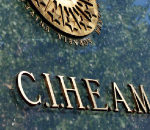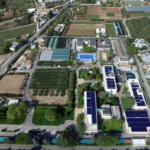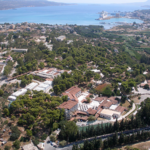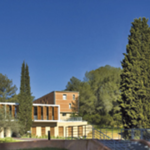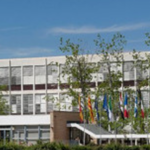Hevsel Gardens in Diyarbakir
Archeology - Measure - Innovation - Development - Anatolia (AMIDA)
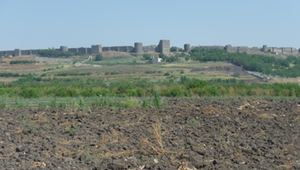 The ancient city of Amida (nowadays, Diyarbakir) and Hevsel Gardens have been classified as a World Heritage and Cultural Landscape by UNESCO since 2015. Local know-how and traditional practices need to be analyzed and shared in order to contribute to sustainable alternatives such as agro-ecology or short supply chain organization.
The ancient city of Amida (nowadays, Diyarbakir) and Hevsel Gardens have been classified as a World Heritage and Cultural Landscape by UNESCO since 2015. Local know-how and traditional practices need to be analyzed and shared in order to contribute to sustainable alternatives such as agro-ecology or short supply chain organization.
Objectives
Contribute to the protection of the tangible and intangible, natural and cultural heritage of Diyarbakir and Hevsel Gardens:
- Identify the cultural practices and analyse how knowledge is being shared and transferred in Hevsel Gardens.
- Explore the interactions between human activities and environment to better understand the types of practices (harvesting, irrigation, etc.) and the way to contribute to sustainable environment.
Activities
- Research work : surveys, data bases and interpretations
- Territorial diagnostics and analysis of practices and know-how through qualitative surveys
- Multidisciplinary studies about Hevsel Gardens, cultural landscape located in Diarbakyr on the banks of the Tigris river
Results and impacts
- Creation of a Geographic Information System (GIS) dedicated to the Walls of Diyarbakir, the Hevsel Gardens and the Tigris River
- Collection of oral and written literature
- Trainings and awareness-raising among students to highlight the singularities of cultural heritage
- Economic benefits for local tourism (creation of a GIS and support in managing the UNESCO process)
- Participation in research programs on the Tigris Valley (collaborating in projects coordinated by the universities of Batman, Diyarbakir and Izmir)
Main publications
Sabri KARADOĞAN, "Geographical landscape and evidence of civilization in the valley of the Tigris River and its tributaries Batman to Botan » in Workshop International « AMIDA 2016 LES JARDINS DE L’HEVSEL : le Tigre, l’eau et la ville, et quelques éléments pour la sauvegarde du site urbain (Prof. Dr., Dicle Üniversitesi Coğrafya Bölümü), Nov. 2016, Montpellier.
Martine ASSENAT, “La trame urbaine et son histoire “ » in Workshop International « AMIDA 2016 LES JARDINS DE L’HEVSEL : le Tigre, l’eau et la ville, et quelques éléments pour la sauvegarde du site urbain (MCF département d’Histoire et d’Archéologie, Montpellier 3 CRISES, IFEA), Nov. 2016, Montpellier..
Martine ASSENAT (dir.). L'Hevsel à Amida-Diyarbakır :études et réhabilitation de jardins mésopotamiens. Istanbul : Institut français d’études anatoliennes. (Patrimoines au présent, n. 6). (2015).
Coordinator
Université Paul-Valéry Montpellier 3– CRISES (Centre de Recherches Interdisciplinaire en Sciences Humaines et Sociales) - France
Mots-clés : Archéologie-Mesure-Innovation- Développement-Anatolie
More information
Source of funding: Maison des Sciences de l’Homme Sud (MSH Sud)
Contacts :
- Martine Assénat, Université Paul-Valéry Montpellier 3, France, Coordination du Projet, martineassenat@gmail.com
- Hélène Ilbert, CIHEAM-IAMM, UMR MOISA, France, Responsable analyses institutions, ilbert@iamm.fr
- Jean François Pérouse, IFEA, Turquie, Responsable coordination en Turquie, jeanfrancoisperouse@gmail.com
Partners :
- CIHEAM - Institut Agronomique Méditerranéen de Montpellier (CIHEAM-IAMM) - France
- Institut Français des Etudes Anatoliennes à Istanbul (IFEA) - Turquie
- Université Montpellier 3, LERSEM, (Laboratoire d'Études et de Recherches en Sociologie et en Ethnologie de Montpellier) - France


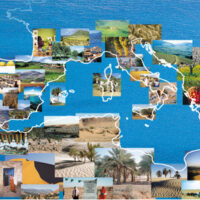 CIHEAM MontpellierOur vision is that of a Mediterranean basin characterised by a spirit of cooperation.
CIHEAM MontpellierOur vision is that of a Mediterranean basin characterised by a spirit of cooperation.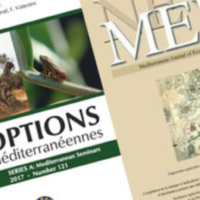 CIHEAM publicationsOur publications and communication tools aim to facilitate decision-making processes for political, economic and agricultural actors in the Mediterranean region
CIHEAM publicationsOur publications and communication tools aim to facilitate decision-making processes for political, economic and agricultural actors in the Mediterranean region News and events
News and events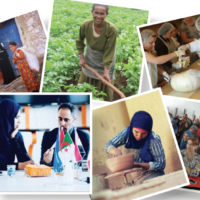 Press review (Scoop.it)
Press review (Scoop.it) Master programmesThe CIHEAM Montpellier stands for both personalised accompaniment and international openness.
Master programmesThe CIHEAM Montpellier stands for both personalised accompaniment and international openness.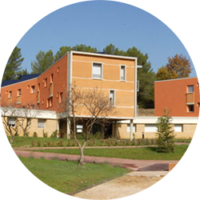 Campus & student lifeSince 1962, almost 95% of our foreign students have been granted accommodation on site.
Campus & student lifeSince 1962, almost 95% of our foreign students have been granted accommodation on site.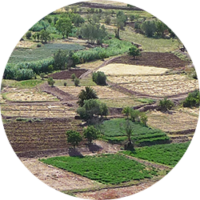 Doctoral platformShaping the scientists of tomorrow through research training… A natural commitment of the CIHEAM Montpellier
Doctoral platformShaping the scientists of tomorrow through research training… A natural commitment of the CIHEAM Montpellier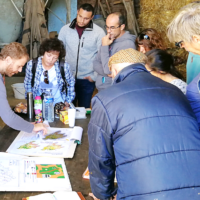 ProjectsOur research and cooperation projects are tools for inclusive development, they take into account the populations and rural and coastal territories of the Mediterranean.
ProjectsOur research and cooperation projects are tools for inclusive development, they take into account the populations and rural and coastal territories of the Mediterranean.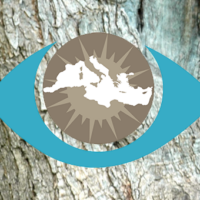 Mediterranean online catalogueA unique Documentation Center on the Mediterranean,
invested in sharing knowledge.
Mediterranean online catalogueA unique Documentation Center on the Mediterranean,
invested in sharing knowledge.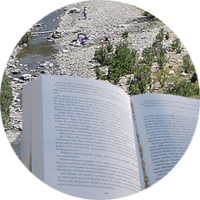 Scientific productionThe scientific production of the CIHEAM Montpellier is the fruit of collaborations by our lecturer-researchers, associated experts, students and research partners.
Scientific productionThe scientific production of the CIHEAM Montpellier is the fruit of collaborations by our lecturer-researchers, associated experts, students and research partners. Becoming partnersCreating partnerships is part of the genetic make-up of the CIHEAM Montpellier... Join one of its projects or study programmes, support its actions.
Becoming partnersCreating partnerships is part of the genetic make-up of the CIHEAM Montpellier... Join one of its projects or study programmes, support its actions.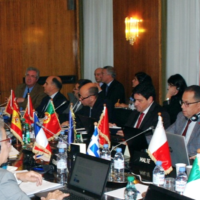 Ministerial meetingsThrough the Ministerial, CIHEAM contributes to the construction of a dialogue between the Mediterranean countries around questions relating to agriculture and the rural world.
Ministerial meetingsThrough the Ministerial, CIHEAM contributes to the construction of a dialogue between the Mediterranean countries around questions relating to agriculture and the rural world.